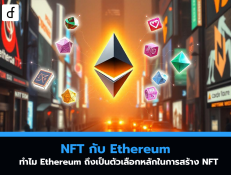
5 important books that are not often talked about but should be read before applying for a Quant job
2025-05-14 03:52:02
If you are preparing to apply for a job in Quantitative Finance, one thing that is often necessary is reading foundational books on mathematical finance (such as "Hull," "Baxter & Rennie," or "Joshi") or having completed an MFE (Master in Financial Engineering) program.
But there are still some books that might not appear on these standard lists — yet they contain important content that can provide a deep understanding of Quant work. Here are 5 unconventional books that are worth reading:
1. Mathematics for Finance: An Introduction to Financial Engineering
(Springer Undergraduate Mathematics Series)
This book is part of the Springer Undergraduate Mathematics Series, focusing on systematic mathematical rigor. It is suitable for second- to third-year undergraduate students studying mathematics, featuring proofs of various theories alongside presentations of quantitative finance content.
Covers both derivatives pricing and modern portfolio theory through the CAPM model. This book serves as a good bridge for mathematicians who want to enter the world of quantitative finance.
2. Arbitrage Theory in Continuous Time
(Oxford Finance) – by Thomas Björk
An in-depth book that thoroughly covers Arbitrage theory, starting from the Binomial model, to Stochastic Calculus, and derivative pricing through the Martingale method.
It also delves into specialized topics such as pricing barrier options, the LIBOR market model, and optimal stopping problems for early exercise options, along with an appendix covering measure theory, probability, and martingales.
3. How I Became a Quant: Insights from 25 of Wall Street's Elite
Even though it's not a technical book, it's an excellent source of inspiration. It gathers stories from 25 Quants from top financial firms on Wall Street.
Covering a variety of roles, including portfolio management, derivative pricing, market microstructure, and risk management, this book focuses on life stories — how each individual transitioned into finance from a background in mathematics and physics.
4. Inside the Black Box: The Simple Truth About Quantitative Trading
By Rishi Narang
A book that explains how to evaluate systematic Quantitative funds, focusing on seasoned investors but also suitable for Quants or Quant Developers.
The content covers the overall system of automated trading models, the risks associated with data simulation, and data management. This book focuses on in-depth risk assessment and methods for analyzing quantitative trading systems in a thorough yet easy-to-understand manner.
5. Effective C++, More Effective C++, and Effective STL
By Scott Meyers
Even though it is a series of multiple books, it should be considered one of the essential sets for Quants, especially for the Quant Developer position that requires writing models in C++.
The book "Effective C++" is quite well-known, but many people often overlook "More Effective C++" and "Effective STL," which focus on practices that help use the Standard Template Library (STL) efficiently — essential for developing quantitative financial models.
If you are preparing to enter the Quant field Reading these books will give you a deeper perspective beyond just mathematical formulas — and an understanding of the overall industry, including the actual techniques used in the job.
Reference: 5 Important But Not So Common Books A Quant Should Read Before Applying for a Job
From https://www.quantstart.com/articles/5-Important-But-Not-So-Common-Books-A-Quant-Should-Read-Before-Applying-for-a-Job/
Leave a comment :
Recent post

2025-01-10 10:12:01

2024-05-31 03:06:49

2024-05-28 03:09:25
Tagscloud
Other interesting articles
There are many other interesting articles, try selecting them from below.

2024-03-11 04:06:47

2023-10-02 05:43:43

2024-01-03 02:09:43

2023-10-18 04:33:37

2024-11-25 03:22:48

2025-02-11 10:10:48

2025-02-03 03:01:55

2023-12-13 03:10:57

